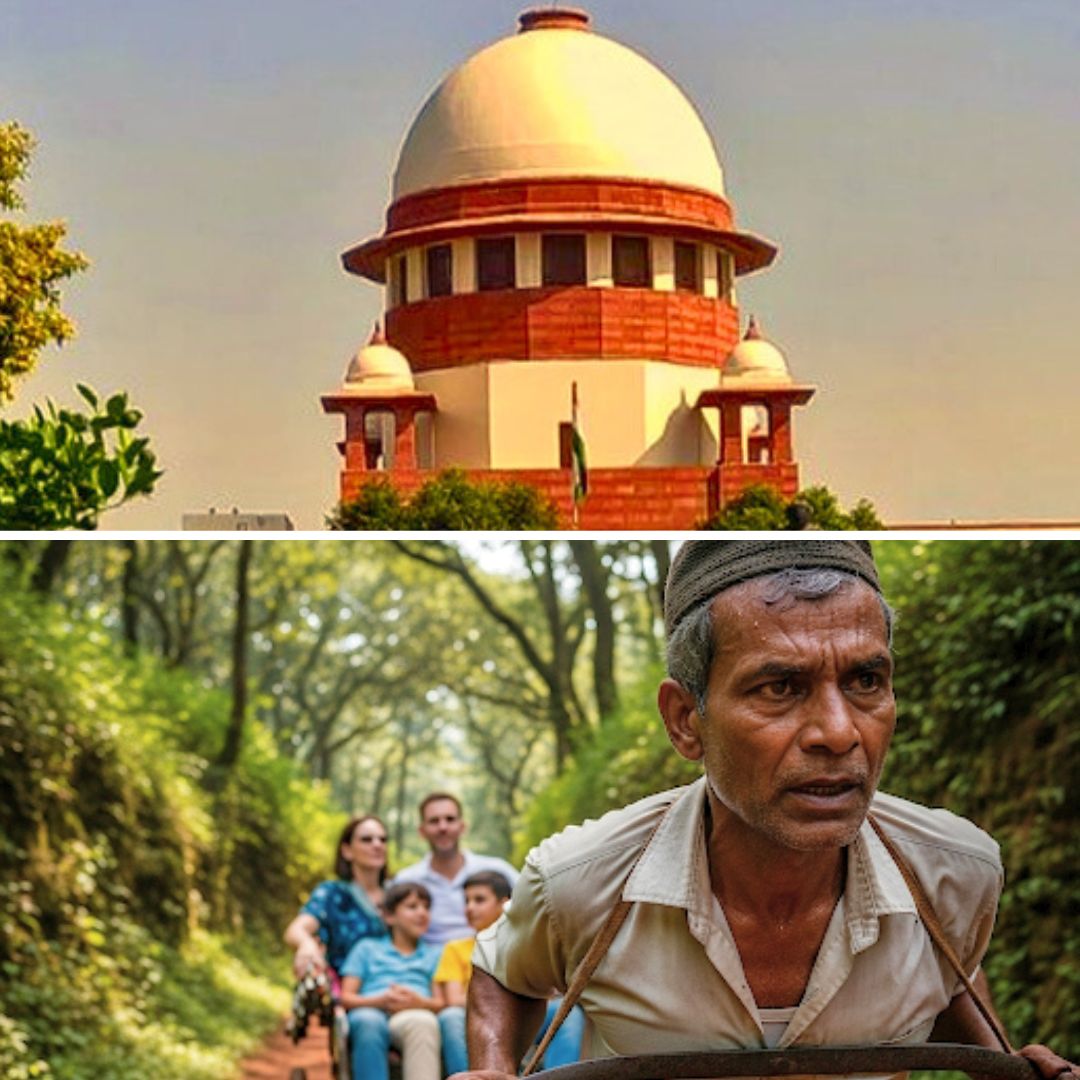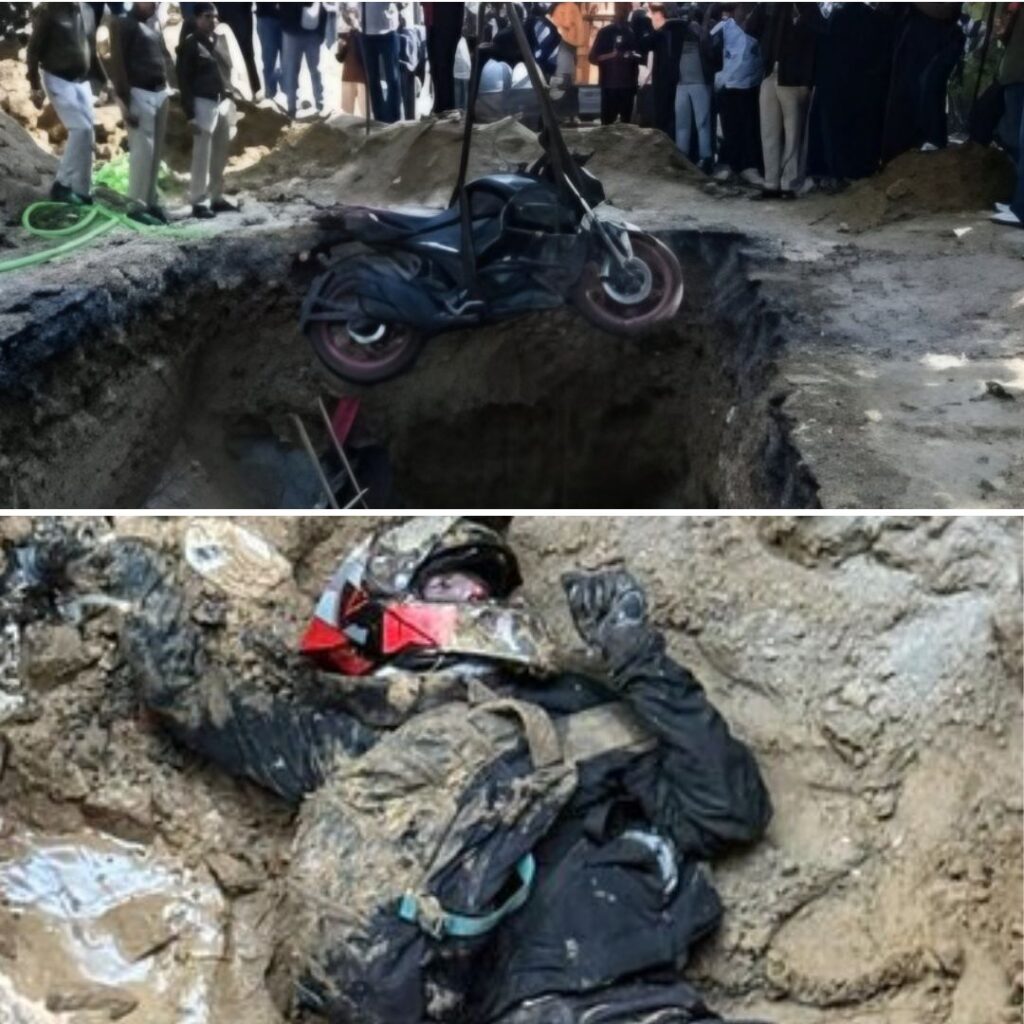In a landmark judgement, the Supreme Court of India has declared the age-old practice of hand-pulled rickshaws in Matheran, Maharashtra, “inhuman” and unconstitutional, ordering their complete ban within six months.
The bench, led by Chief Justice B. R. Gavai, instructed the Maharashtra government to implement e-rickshaws and design a comprehensive rehabilitation programme to guarantee that rickshaw pullers are not left jobless.
The move directly impacts the livelihoods of hundreds of workers and the unique tourism-driven transport ecosystem in the vehicle-free, eco-sensitive hill station of Matheran.
This decisive action, following years of debate and delays, seeks to balance human dignity, workers’ rights, and sustainable mobility.
‘Supreme Court: “Human Dignity Cannot Wait”’
During the hearing, the Supreme Court delivered scathing criticism of the ongoing use of human-pulled carts, stating it runs counter to “the basic tenets of human dignity and constitutional morality.” Chief Justice Gavai remarked, “Seven decades after independence, it is deeply regrettable that such an inhuman practice still persists.”
The Court acknowledged public interest litigation and concerns raised by citizens and activists over both the ethical and social costs, noting that most men engaged in hand-pulling rickshaws do so under harsh economic distress rather than genuine choice.
The ruling specifically directs Maharashtra to prioritise e-rickshaw allocation to current rickshaw pullers, using methods trialled in Gujarat’s Kevadia, and to ensure all transitions are monitored by a dedicated committee.
The judges insisted that lack of government funds cannot be cited as an excuse for delay, further reinforcing the urgency and moral imperative of the order.
‘Ecological Challenges and Historical Context’
For over a century, Matheran’s identity has been shaped by its car-free environment, forested hills, and reliance on hand-pulled rickshaws for local transport.
With a permanent ban on motor vehicles in place since its declaration as an eco-sensitive zone in 2003, nearly 400 hand-pulled rickshaws have provided the only means of transit for the town’s 8 lakh annual visitors, residents, and traders.
Past attempts to introduce e-rickshaws faced political, logistical, and environmental hurdles including protests from traditional pullers, technical issues with early electric alternatives, and ongoing debates about the impact of batteries on fragile local ecology.
The Supreme Court referenced successful rehabilitation models in other Indian hill stations, signalling that innovative solutions are possible without sacrificing workers’ rights or environmental values.
The state government, meanwhile, faces the twofold task of safeguarding tourism-generated livelihoods and championing a transition that leaves no family behind.
The Logical Indian’s Perspective
The Supreme Court has delivered more than a judicial order this is a collective call for compassion, justice, and a refusal to leave anyone behind in our march toward progress. Ending hand-pulled rickshaws honours the pain and dignity of thousands who have laboured in silence and transforms India’s oldest hill station into a symbol of humane innovation.
Yet, the success of this bold transition now depends on transparent government action, sincere community involvement, and our capacity for empathy. Will we, as a society, meet the promise of coexistence one that ensures Matheran’s workers are not just ‘rehabilitated’ but respected, uplifted, and included in the region’s future prosperity?













